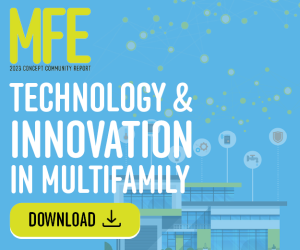
In the still moments of dawn on Sept. 27, Carol J. Galante stood with hundreds of other San Francisco Bay Area women on the shores of Shadow Cliffs Lake in Pleasanton, Calif. At 7:30 am, a starting pistol cracked the morning silence, and a wave of competitors in the See Jane Tri sprint triathlon plunged into the lake's chilly waters, emerging 500 meters later for an 11-mile bike ride followed by a 3-mile run.
No mere race, the sprint triathlon requires a mastery of the distinctly different disciplines of swimming, cycling, and running—all at distances designed to challenge the speed, agility, and endurance of its competitors. Some two-and-a-half to three grueling hours after starting, those who have mustered the physical drive and mental acuity to master the course can momentarily bask in the glory of achievement before turning their attention to training for the next event or life challenge.
If sport is a metaphor, the sprint triathlon is well suited for Galante, president of San Francisco-based BRIDGE Housing Corp. and MULTIFAMILY EXECUTIVE's 2008 Executive of the Year. Three years ago, an organizational consultant performed personality profiles for the senior staff at BRIDGE and revealed that Galante, 54, was happiest when she had too many things to handle. The executive team smiled wryly and nodded their heads in agreement. “I wouldn't say I am restless, but I do need multiple challenges to keep me occupied,” Galante agrees with little reluctance. “I need a lot of balls in the air; I almost need to be on the edge to feel like I am alive.”
Galante was named president of BRIDGE following the sudden and tragic 1996 death of the organization's co-founder, housing icon Don Terner. [See “Carrying the Legacy” on opposite page.] And since then, she and BRIDGE have been on the edge all right—on the bleeding edge of quality affordable housing production that embraces innovative green building and operating practices, unprecedented public housing redevelopment efforts, and a political and public policy outreach machine second to none.
In production capacity alone (1,133 starts and 785 completions in 2007), the company is now the largest affordable rental housing developer in the state of California. That's no small feat considering that BRIDGE's competitors include Bay Area nonprofit stalwarts such as Mercy Housing, Eden Housing (where Galante was executive director prior to joining BRIDGE) and Mid Peninsula Housing Coalition, as well as a host of for-profit national developers. And standing at the helm, driven by confidence and passion, is Galante.
MISSION DRIVEN Sheer size is one of BRIDGE's greatest achievements. In fact, BRIDGE is the ninth-largest affordable housing developer in the country and ranks only 67 starts behind its closest nonprofit peer, according to annual rankings compiled by AFFORDABLE HOSUING FINANCE magazine, a sister publication to MFE. Credit those achievements to the mission objectives at BRIDGE, Galante says. Since inception, the firm has unwaveringly included mandates for size, scale, and growth, as well as directives to operate the company as if it were a for-profit entity. While following those mandates has led to distinctive opportunities—including partnering with giant pension funds and market-rate developers on New Urbanism projects—it has also made it difficult to keep the entrepreneurial spirit alive in a company becoming increasingly large and layered.
Most recently, that challenge manifested itself in a duel between cowboys and checkboxes, of all things. Looking at BRIDGE's growth, the company's senior vice president and CFO D. Kemp Valentine has been leaning on Galante to adopt a more formalized employee screening and review process. However, executive vice president Lydia Tan in the real estate division has pushed back, arguing that her development team needs to be unbridled for maximum success in the marketplace. “It is a good example of how the senior management team can be at odds,” Galante explains. “[D. Kemp] is trying to develop more prescriptive processes, while Lydia is hiring a bunch of cowboys to go out into California and find dirt. It's a conflict between trying to mitigate risk and trying to keep the engine of the company satisfied.”
Galante says that the choice in this particular case was clear. “I came up on the development side; I get that we need to protect that culture. That doesn't mean that we do not need personnel procedures, but for this portion of the staff, those processes are not going to be check-the-box.”
The BRIDGE team isn't always so contentious, but Galante does seem to appreciate a Hamilton vs. Jeffersonian streak among her senior advisors as she guides the company strategically. Her leadership style is a careful balance between unilateral decision-making and team consultation. While her door is always open, her sleeves rolled up to tackle all corporate initiatives, she also knows when to make a call without hesitation. “I really want to hear from people; I really want to weigh all opinions,” she says. “But at the end of the day, I break the tie. We are not going to be paralyzed by a lack of consensus.”
The approach is somewhat atypical among nonprofit affordable housing providers and doesn't go without notice in the industry. “Carol is the ultimate effective influencer—nimble and flexible, but at the same time extremely direct,” says Diane Spaulding, executive director of San Francisco's NonProfit Housing Association of Northern California (NPH). “You don't have to guess what she is thinking or where she is headed. As a representative of the nonprofit housing sector, that is one of the qualities that puts her at the top and refutes the perception that nonprofit developers are not as good, not as professional, not as smart,” she says.









